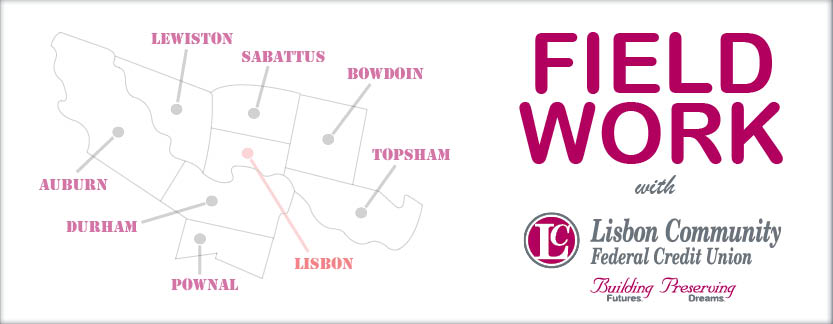What Notaries Do
A notary public is a person who, by the authority vested by the state, determines that the person who signs a document in his/her presence is in fact who that person claims to be. When appearing before a notary, you bring proper identification and sign the documents in the presence of the notary public. The notary compares your appearance to the picture in your identification, verifies your signature matches and applies a seal to your document. The notary, in effect, acts as an impartial witness and implements requirements that deter fraud.
Signature Guarantees
A signature guarantee is a stamp placed on financial instruments by a financial institution, guaranteeing that the signature is valid. The most common use for a signature guarantee is to authenticate your right to sell or transfer securities. It protects the person who owns the stock or certificate and makes it more difficult for someone to forge a signature. To be able to affix the signature guarantee stamp or imprint, financial institutions join a signature guarantee program, the most widely used being the Medallion Signature Guarantee Programs. Like a notary service, a representative of a participating financial institution reviews your paperwork (including a statement showing the value of the securities), witnesses your signature and then, in applying the signature guarantee stamp, guarantees that your signature is genuine. The stamp uses a bar code, special ink and other security features to make it more difficult to copy or counterfeit.
Monday, April 20, 2015
Thursday, March 5, 2015
IRS Phone Scam - Please Be Aware of this Dangerous Scam
The Lisbon Credit Union feels that it is important to keep our Membership aware of serious and potentially dangerous scams that are at large in today's society.
With the income tax filing deadline coming up, there is a new threat involving criminals posing as IRS agents. These scam artists are making weekly phone calls, victimizing thousands of Americans by demanding that payments be made to the IRS. These crooks are threatening that legal action will result in these calls being ignored.
If you receive a call from someone claiming to be the IRS and demanding payments as well as threatening you with legal action, please do not hesitate to hang up your phone.
For more informaiton on the matter, please follow this link:http://www.cbsnews.com/news/dangerous-irs-phone-scam-unfolding-on-your-phone/
With the income tax filing deadline coming up, there is a new threat involving criminals posing as IRS agents. These scam artists are making weekly phone calls, victimizing thousands of Americans by demanding that payments be made to the IRS. These crooks are threatening that legal action will result in these calls being ignored.
If you receive a call from someone claiming to be the IRS and demanding payments as well as threatening you with legal action, please do not hesitate to hang up your phone.
For more informaiton on the matter, please follow this link:http://www.cbsnews.com/news/dangerous-irs-phone-scam-unfolding-on-your-phone/
Labels:
IRS,
Lisbon Community Federal Credit Union,
phone scam,
scam
Monday, February 9, 2015
Newsletter Activity: Guess Who Credit Union Staff Baby Photos!
Here are the answers to the credit union staff baby photos activity. Thank you for your submissions! the winner is Jeannine P.
Monday, January 12, 2015
Elder Financial Abuse
Elder financial abuse is the theft or embezzlement of money or any other property
from an elder. It can be as simple as taking money from a wallet and as complex
as manipulating a victim into turning over property to an abuser. This form of abuse
can be devastating because an elder victim’s life savings can disappear in the blink
of an eye, leaving them unable to provide for their needs and afraid of what an
uncertain tomorrow will bring.
It's sad, but estimates show that millions of seniors are victimized by financial abuse each year. The most frequent type of elder abuse is perpetrated by a family member who uses the resources of an elderly relative for their own benefit. Signs of elder financial abuse include unpaid bills, missing valuables, comments from the elderly person and isolation.
If you are or know a victim of elder financial abuse, you can call the Elder Abuse Hotline of the Maine Department of Health and Human Services Adult Protective Services Division at 1-800-624-8404.
from an elder. It can be as simple as taking money from a wallet and as complex
as manipulating a victim into turning over property to an abuser. This form of abuse
can be devastating because an elder victim’s life savings can disappear in the blink
of an eye, leaving them unable to provide for their needs and afraid of what an
uncertain tomorrow will bring.
It's sad, but estimates show that millions of seniors are victimized by financial abuse each year. The most frequent type of elder abuse is perpetrated by a family member who uses the resources of an elderly relative for their own benefit. Signs of elder financial abuse include unpaid bills, missing valuables, comments from the elderly person and isolation.
If you are or know a victim of elder financial abuse, you can call the Elder Abuse Hotline of the Maine Department of Health and Human Services Adult Protective Services Division at 1-800-624-8404.
Labels:
credit union,
elder financial abuse,
identity theft
Subscribe to:
Comments (Atom)

